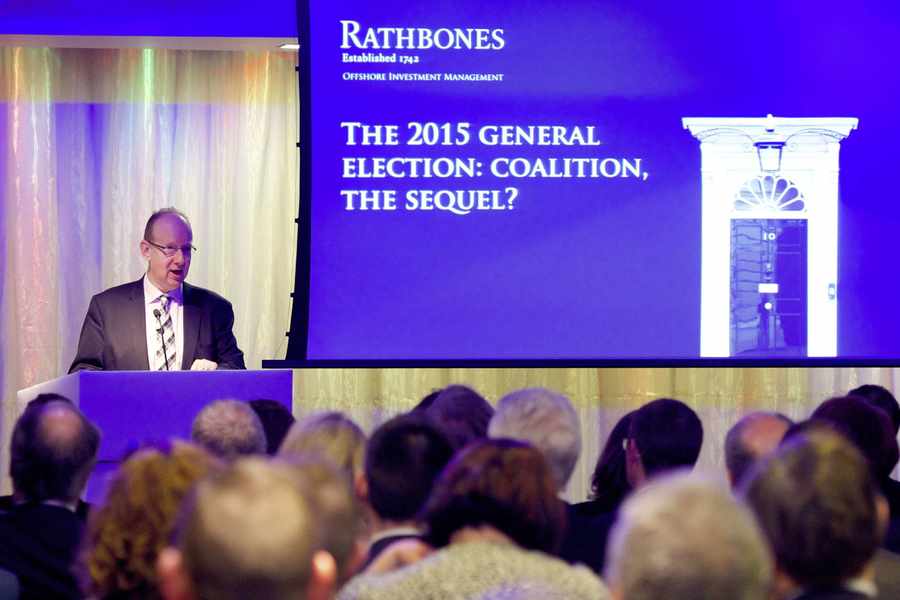Yesterday the associate editor of The Times, Baron Finkelstein, was in the Island to speak at a breakfast event at the Royal Yacht Hotel about understanding the politics behind the May election.
After his address, Lord Finkelstein, who was elevated to the House of Lords in 2013, said that there was ‘less risk’ of any serious impact to Jersey if David Cameron remained Prime Minister for another term.
‘My general view is that the Conservatives have a greater understanding of the importance of businesses and business people making money,’ he said.
‘It is a fundamental political difference. It’s not that Labour is against enterprise, or anything crude like that, but I think there is a difference between attitudes towards making lots of money.’
Lord Finkelstein explained that with Labour’s campaign focused on reducing the deficit but not lowering public expenditure, if the party were elected it would probably turn its attention to reducing tax avoidance.
Labour leader Ed Miliband recently said that should his party win the general election, he would demand that UK offshore finance centres, including Jersey, were put on the Organisation for Economic Co-operation and Development blacklist unless they produced a public record of offshore company ownership within six months.
Shortly after Mr Miliband’s announcement, Jersey’s Chief Minister, Ian Gorst, defended the Island’s position, asserting that Jersey was ‘at the front of the fight against tax evasion’ and that any threats to blacklist Jersey were ‘difficult to understand’.

However, Lord Finkelstein said that although the Tory position was not as strong as Labour’s, the party would chase those involved in ‘aggressive’ tax avoidance.
‘I have to say that I suspect that the Conservative Party will also be on the lookout for that element of avoidance that they can reasonably determine as aggressive and not intended by the tax system,’ he added. ‘Ordinary avoidance, though, they will be less inclined to go after.’
During his earlier address the 52-year-old said that the UK election was so difficult to predict that it was ‘a bit of a coin toss’.
Describing what he thought would happen in the run-up to the election, Lord Finkelstein said that he expected the economy to improve, that UKIP would gain more publicity and would slightly damage the Conservative vote, and that Labour would ‘have a catastrophe’ in Scotland.
- Lord Finkelstein is the associate editor of the Times he writes a politics column and Fink Tank a statistical football column in the Saturday edition. He joined the paper in 2001 and was formerly the executive editor.
- In the early 1990s Finkelstein was the editor of Connexion, Britain’s first internet and data communications newspaper
- Between 1995 and 1997 Finkelstein was Director of the Conservative Research Department and in that capacity advised Prime Minister John Major and attended meetings of the Cabinet when it sat in political session.
- Awarded an OBE in the 1997 honours list
- Between 1997 and 2001 he was political adviser to the Leader of the Opposition, William Hague, and, together with George Osborne, Secretary to the Shadow Cabinet
- In the 2001 general election Finkelstein was the unsuccessful Conservative parliamentary candidate in Harrow West
- He was elevated to the House of Lords in 2013, becoming Baron of Pinner in the County of Middlesex






